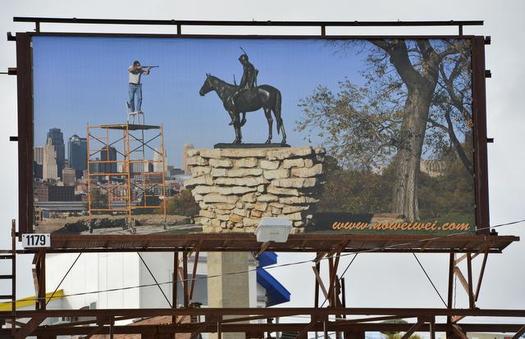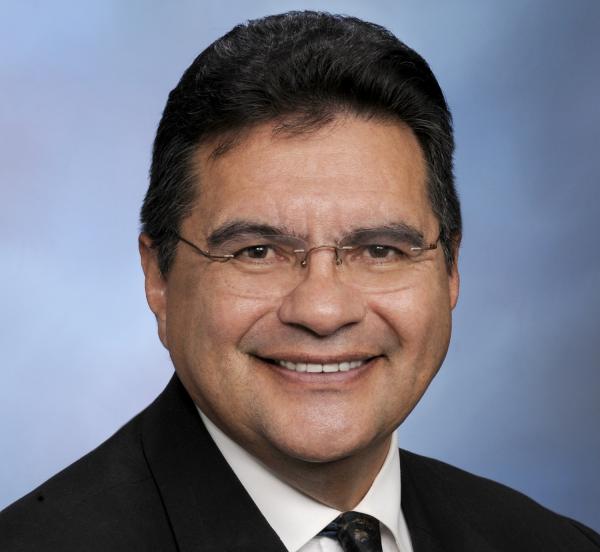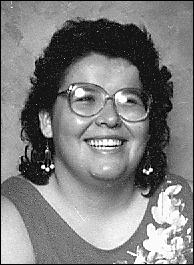Rob Capriccioso, ICTMN
The federal government has a trust responsibility to tribes and their citizens. It is a unique relationship, which means there will be unique – and painful – consequences as a result of the government’s current shutdown, tribal leaders say.
The shutdown, which began at 12:01 a.m. on October 1, occurred because U.S. House Republicans passed several short-term continuing resolution budgets that included provisions to delay and/or defund portions of the Affordable Care Act, widely known as Obamacare. Both the Democratic Senate and White House would not agree to those provisions, which set the stage for the first federal shutdown in 17 years.
Tribal leaders, widely tired of political games surrounding the federal budget – as well as the profound impacts of ongoing sequestration – are frustrated, to say the least.
“What is just partisan game playing in Washington, D.C. is a battle for survival in Indian country where many of us barely subsist,” said Edward Thomas, president of the Central Council of Tlingit and Haida Indian Tribes. “Many of our 28,000 tribal citizens live at the very edge of survival and depend upon our tribe’s ability, with federal funding, to provide critical human services.
“Any interruption in federal funding, especially for a self-governance tribe like ours without gaming or other substantial economic development, means we must borrow money – from an expensive line of credit we cannot afford – to meet our payroll obligations to child welfare workers, to job trainers, to housing workers, and to natural resource subsistence protection,” Thomas said.
Ron Allen, chairman of the Jamestown S’Klallam Tribe, said he was disappointed in Republican House tea party members for insisting on defunding Obamacare as part of the budget process. “’My way or the highway’ is not a way to run the federal government,” Allen said. “Tribal leaders have many frustrations with the federal government, but we try to find ways to make it work. That’s what Congress needs to be doing.”
Allen predicted that the shutdown would be “devastating” for over half of the tribes he estimates do not have gaming or other enterprises to fall back on for funding during a federal shutdown. “So many of us – the majority – of tribes are dependent on federal resources,” he said. “It’s going to be tough for the tribes.”
Dozens of tribal leaders have voiced similar concerns to officials with the Departments of the Interior, Health and Human Services, and other federal agencies that serve large amounts of American Indians, according to federal officials. The White House, heeding that concern, held a teleconference with some tribal leaders on September 30 during which administration officials blamed the House Republicans for the shutdown. Kevin Washburn, Assistant Secretary for Indian Affairs at Interior, also sent a letter to tribal leaders explaining the department’s contingency plan.
The House’s attempt to tie a suspension of Obamacare to a budget bill is unpopular with tribal leaders, as many tend to support the law, since it includes provisions to support the Indian Health Care Improvement Act. If Republicans had their way, a new way to support that Indian health-focused part of the law would be necessary unless lawmakers agreed they no longer wanted to focus on improving Indian health via that law. Republicans will not have their way, however, as Obamacare is the crown jewel of Barack Obama’s presidency to date, and Democrats have been trying to pass universal healthcare since Franklin D. Roosevelt in the 1930s.
The real impact on tribes will depend on how long the government is shuttered. It will stay closed until the House Republicans and Senate Democrats can agree on a plan to fund it.
Congress and the president will still be paid during the shutdown.
Public opinion to date is largely against the House Republican position, yet many tea party GOPers, over objections of more moderate Republicans, continue to favor a budget bill that ties Obamacare to it. They have made the case that Obamacare, which goes in effect October 1, is too costly, so they believe it is worth delaying. But Obamacare is intended to reduce health-care costs for individuals and the country, Democrats have countered. And even with the shutdown, Obamacare will still be implemented.
Ironically, the most recent continuing resolution that has passed both the House and Senate thus far – excluding the Obamacare portions – is good for Indian country in that it does not include provisions pushed by the White House Office of Management and Budget that would limit the federal government’s payment of contract support costs to tribes. “That’s encouraging,” Allen said, noting that the White House proposal to cap tribal contract support costs was originally included in the Senate continuing resolution, but faced with widespread tribal opposition, it was withdrawn by Senate leadership. “We have some key people who are supportive of keeping it out.”
RELATED: White House Trying to Cheat Tribes on Health Costs
Tribal advocates are widely hopeful that once a long-term budget is agreed on – however long that takes – funding for tribal contract support costs will be included without a cap, despite lingering White House opposition to paying its tribal bills.
Despite progress on the contract support cost front, the continuing resolution supported by the House, Senate and White House maintains funding for Indian country at a sequestered level, which means programs that support tribes continue to face dramatic cuts. A joint decision by Congress and the White House, first made in 2011 and carried out on March 1 of this year, allowed an across-the-board 9 percent cut to all non-exempt domestic federal programs (and a 13 percent cut for Defense accounts). This sequester has dramatically harmed Indian-focused funding, and tribal leaders across the nation have claimed it is a major violation of the trust responsibility relationship the federal government is supposed to have with American Indians, as called for in historic treaties, the U.S. Constitution and contemporary American policy.
“The tribes would rather their budgets be exempt from this stuff,” Allen said. “But the political ability for that to happen is next to nil. The new options that people are considering is pushing for two years or longer forward funding for Indian health programs and essential government services, like some programs for veterans.”
Tribal leaders have been pushing hard to get sequestration on Indian programs removed, Allen noted, but the White House has said that it is not going to protect any programs. When asked by tribal leaders if tribes could be exempted from sequestration given the Obama administration’s stated belief in federal-tribal trust responsibility, Charlie Galbraith, the Associate Director for Intergovernmental Affairs at the White House, said at a February gathering of the United South and Eastern Tribes, “That’s just not going to happen. We have the entire military machine, every lobbyist, every contractor, trying to exempt the military provision—the president is not going to cut this off piecemeal. We need a comprehensive solution that is going to address the real problem here.”
RELATED: A Miscalculation on the Sequester Has Already Harmed Indian Health
Beyond Obamacare, contract support costs and sequestration, the immediate impact of the shutdown will be on the federal workforce, and that impact will soon trickle to Indian country. Overall, approximately 800,000 non-essential government employees are expected to be furloughed.
At the U.S. Department of the Interior, 2,860 of 8,143 employees focused on Indian affairs will be laid off during this shutdown. At the Bureau of Indian Affairs (BIA) alone, the following programs will cease, according to the DOI.gov/shutdown website: management and protection of trust assets such as lease compliance and real estate transactions; federal oversight on environmental assessments, archeological clearances, and endangered species compliance; management of oil and gas leasing and compliance; timber harvest and other natural resource management operations; tribal government related activities; payment of financial assistance to needy individuals, and to vendors providing foster care and residential care for children and adults; and disbursement of tribal funds for tribal operations including responding to tribal government request.
The situation is less dire at Interior for Indian affairs cutbacks than it had been during previous shutdowns in the 1990s, Interior officials said, because they have since implemented a forward-funding plan in the areas of education and transportation, which will keep the employees in those areas working. There is also a comparatively larger law enforcement staff that will remain on duty through the shutdown, and power and irrigation employees will be able to continue working to deliver power and water to tribal communities because their salaries are generated from collections, not appropriated funds.
Employees at the Indian Health Service (IHS), which provides direct health service to tribal citizens, will be largely unaffected by the shutdown. Under Department of Health and Service’s shutdown plan, IHS will continue to provide direct clinical health care services as well as referrals for contracted services that cannot be provided through IHS clinics. On the negative side, “IHS would be unable to provide funding to Tribes and Urban Indian health programs, and would not perform national policy development and issuance, oversight, and other functions, except those necessary to meet the immediate needs of the patients, medical staff, and medical facilities,” according to a plan released by the agency.
Chris Stearns, a Navajo lawyer with Hobbs Straus, said the current shutdown is another hit to the relationship between the federal government and tribes. “The trust responsibility, and the right to federal services, which Indian country has already paid for with its lands, will be diminished,” he said of the current situation. He should know, having worked on Capitol Hill during the government shutdowns of the mid-1990s, which saw thousands of BIA employees laid off, and lease payments to tribes and individuals delayed.
Now, like a bad dream, it’s happening all over again.
“Perhaps it might be fair, if during a shutdown, Indian tribes got to take back our lands in lieu of payments,” Stearns said.
Read more at http://indiancountrytodaymedianetwork.com/2013/10/01/government-shutdown-frustrates-tribal-leaders-151517














